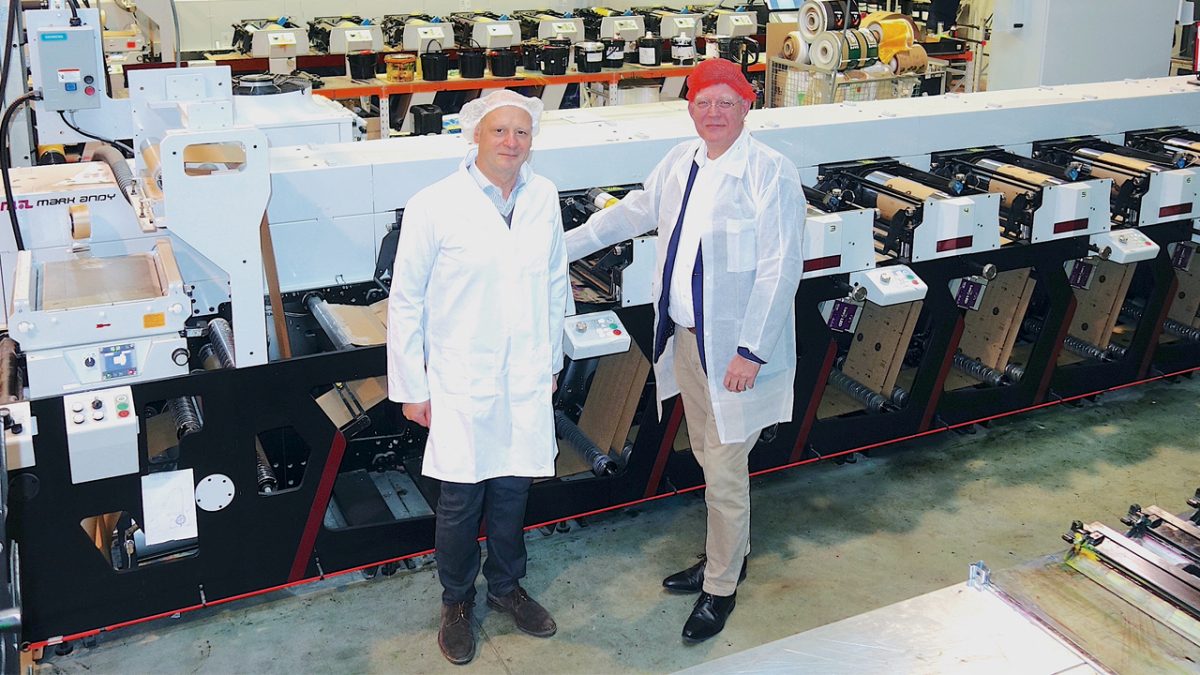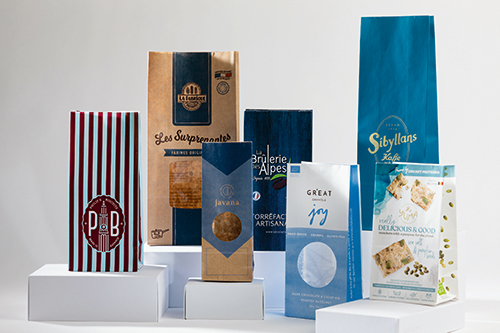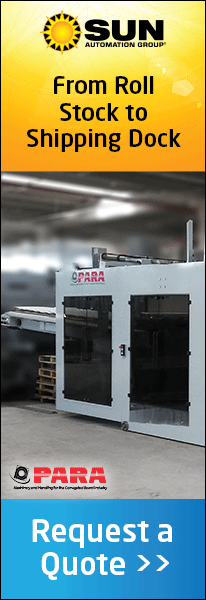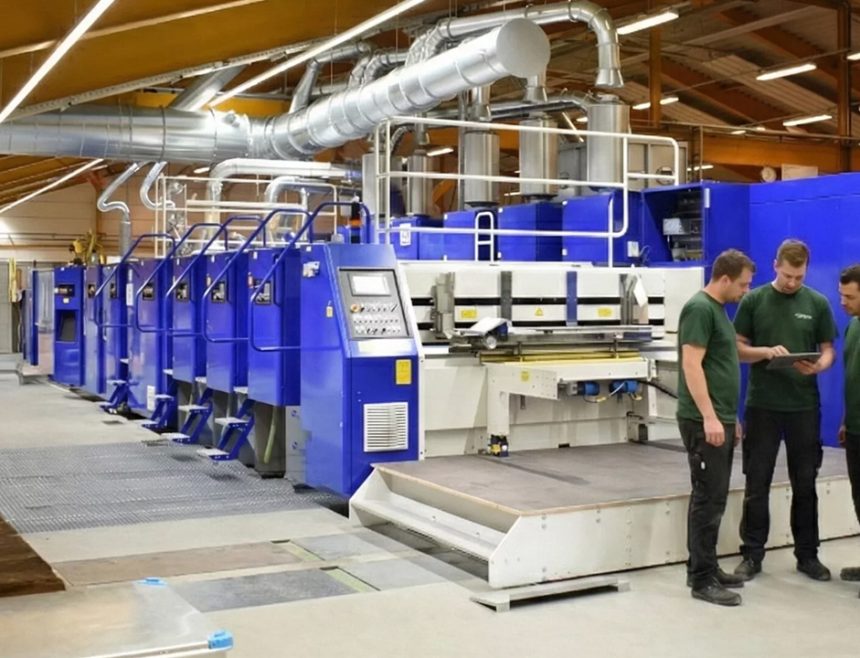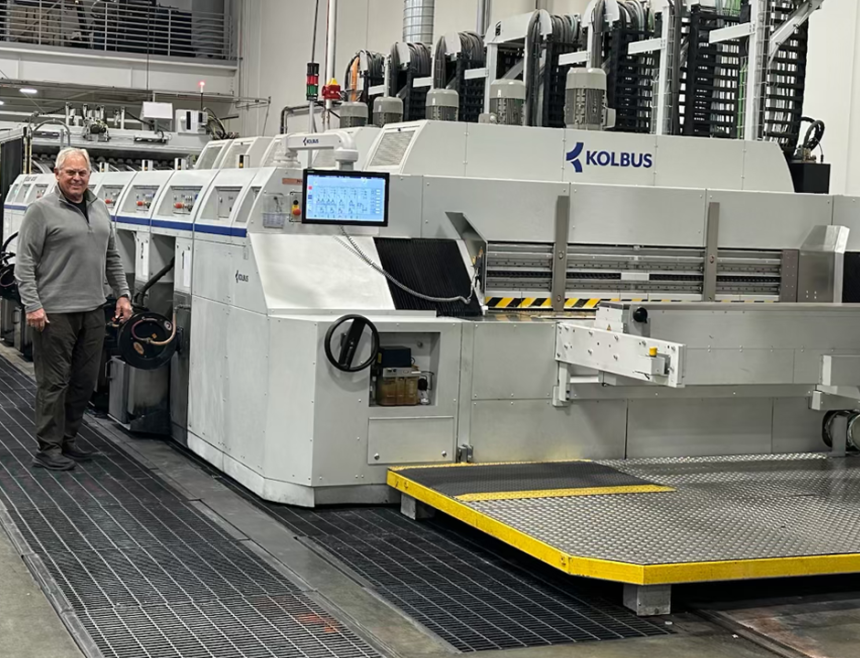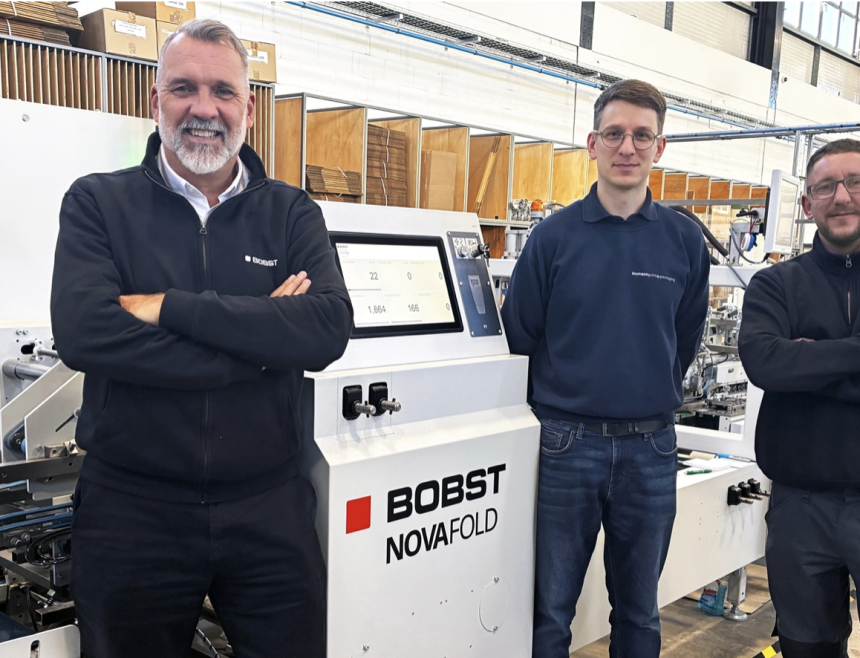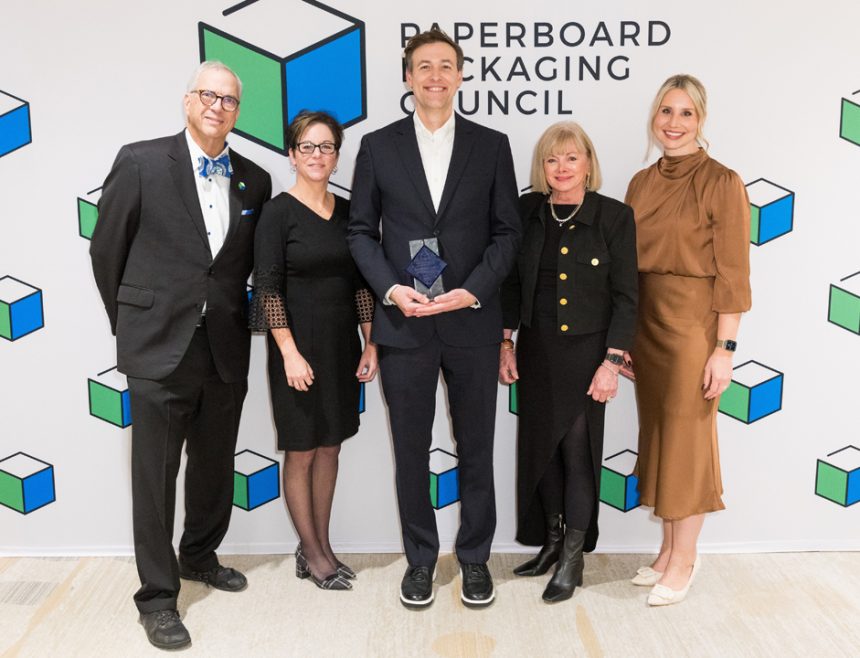A report by Nick Coombes
This perfectly describes the situation with Baginco International, a family enterprise that began life in 1987, but took off in 1995 when husband and wife team Bruno Geens and Katrien Heylen embarked on a project that in simple terms sees paper converted into outstanding packaging, but on closer inspection sees the production of high-quality personalised paper bags for specialised applications.
These block-bottom products, which are designed to stay upright, are re-closable with a simple tin tie, can be simple or elaborately personalised, and offer a quick and affordable solution that is more ecologically friendly that anything that plastic or foil has to offer. Available in various sizes up to a maximum load capability of 2.5kg, Baginco specialises in short to medium runs and will happily supply as few as 1000 bags, though 3000, printed in eight colours is more typical of the work at its HQ and production facility in Kontich, Belgium.
Geens explained, “When we acquired the business it had 100 customers – 98 in Belgium, one in France and one in Holland. Today, we manufacture almost 25 million bags a year and export 80% of those to 2,800 customers in 33 countries – that’s how to grow a niche market.”
Initially manufacturing coffee bags, the company has diversified into flour, biscuits, confectionary, dry vegetables, petfood, and super fruits, as well as sugar and salt.
To meet its commitment to fast turnaround and short delivery times, Baginco retains a sizeable stock of bags, including brown and white paper bags, window bags, eco bags, coloured and pre-printed bags. Customisation techniques include inner and outer finish and colour (up to eight-colours), windowing and grease-proofing using a new paper. There is even a handy ‘calculator’ on the company’s website that allows you to design and define bags to your own requirements.
Initially printing was carried out on 600mm and 800mm solvent-based CI flexo presses, but it soon became obvious that narrow web inline production made more economic sense for the run lengths in demand, typically 1500m of paper. “I could see the way the market was changing, even before the global pandemic upset normal business trading, and spent almost three years extensively researching the inline and CI flexo technology available and testing its capability in real life situations. Unbelievably, only one print demonstration went without a hitch, and that was at Mark Andy’s showroom in Warsaw. The press did all we asked of it and more, and gave us the confidence to invest,” he added.
Some of the key factors that the Mark Andy Performance Series press was able to demonstrate was the speed and ease with which it can be made ready, which, along with a short web path that reduces waste, is critical on short run jobs. So, in 2019 Baginco installed a 430mm (17″) Mark Andy P5E flexo press fitted with eight servo driven flexo print stations with full ProLED/UV curing. Maarten van Bergeijk of Packtion, the manufacturer’s agent in the Benelux, outlined the press’ capabilities. “It’s fitted with pre- and auto-register and will operate at speeds up to 230m/min (750ft/min) with VariPrint capability. It also has a BST Powerscope vision system fitted.”
The operator at Baginco who was familiar with narrow web technology but new to Mark Andy confirmed that the P5E is easy to learn and handle, holds tight register, and is a great operator’s machine. Two years later, the P5E was joined by another 430mm Mark Andy flexo press, this time an Evolution Series E5 fitted with seven-colours and full UV capability. “Specification is similar to the P5E – it’s seven colours not eight but is also fully servo driven and has LED/UV curing, this time supplied by GEW. Pre- and auto register are also fitted to ensure high quality print,” said van Bergeijk.
In addition to switching to inline flexo, Baginco also had to come to terms with the move from solvent-based inks to LED/UV technology. “We had no previous UV experience so saw little point in spending money on an arc lamp system only to retrofit LED later. It’s clearly the way forward and has been easy to use,” said Geens.
Using a paper-based substrate which has a degree of absorbency, the fact that LED/UV cures from the bottom up has proved a benefit on stocks that range from 50 to 110gsm and from simple kraft to high gloss. One technique that the company has learned with its Mark Andy presses is to apply the lacquer in the first unit and then print. On some of the cheaper stocks this gives a higher quality print finish without the expense of using a gloss paper.
With the business growing well, Baginco has opened a sales and production facility in Spain to serve the Iberian market. Located near to Gerona, it adds 800sqm to the 2,000sqm at Kontich. “We’ve enjoyed an upturn in recent times as people engage their ‘green conscience’ and reject the proliferation of plastic packaging, but we’ve also seen raw material and energy costs rise to a point where prices are now some 20-30% above pre pandemic levels,” he concluded.
With more than 40 different bags in stock, which can be purely functional or promotional, or for gift use, Baginco keeps a close eye on the ongoing research into improved types of paper that means it is now possible to pack all sorts of products that require characteristics such as greaseproof, damp-proof, impermeable, or non-translucent. In particular, foodstuffs need to be protected against exterior influences. For example, Baginco offers paper packaging with OPP foil to keep products fresh so that they can be stored longer. Another growing market is paper bags for snack packaging – demand for take-away crackers, cookies, muffins, and brownies is typical of the ways that allow a package to be personalised and therefore make the product more appealing.
With such a diverse range of bags and a growing demand for its personalised products, Baginco appreciates the flexibility and performance of its two Mark Andy presses that offer plenty of scope for future development.

